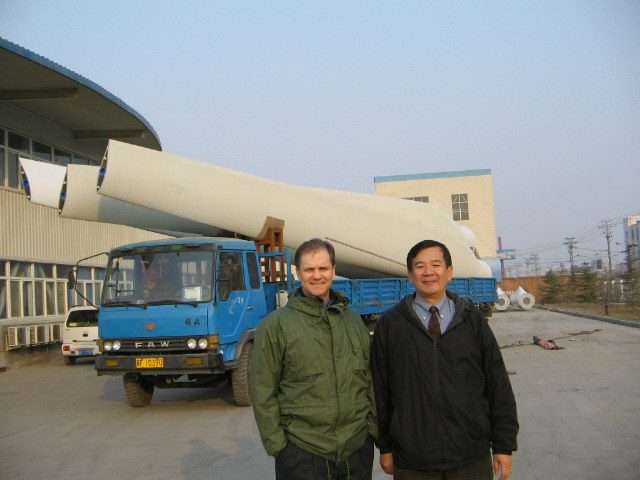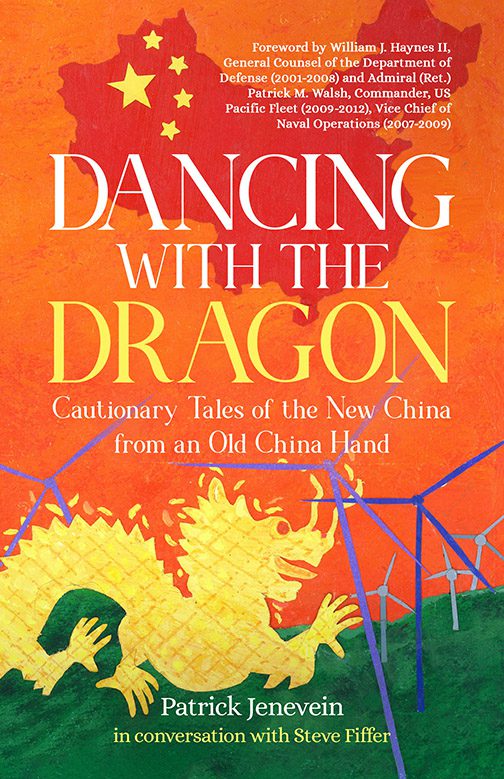How long would you tolerate thieves breaking into your home to steal your precious jewels?
For years, the Chinese Communist Party (CCP) has been getting away with doing just that by orchestrating the theft of cutting-edge technologies and intellectual property– the crown jewels of the United States economy and its national security.
Chinese companies controlled by the CCP have been embedding themselves into the heartland of American business by systematically investing in and buying U.S. companies.
It’s not like a bank robbery with alarms going off. It’s a silent crime spree that costs Americans 600 billion dollars a year, according to the Commission on the Theft of American Intellectual Property.
The case of Dallas energy entrepreneur Patrick Jenevein is a textbook example of how Chinese state-backed entities exploit American businesses to fuel China’s economic, geopolitica, andl totalitarian ambitions.
His book about the experience, Dancing With The Dragon, is a cautionary tale about the threat posed by the United States’ number one adversary.
And the nation’s failure to do much about it.
From Pioneer Spirit to Chinese Markets
Like many Texas entrepreneurs before him, Jenevein carried the state’s pioneering spirit across international borders in the mid-1990s. His initial venture – a $300 million fertilizer plant project in Western China – seemed to embody the promise of Sino-American business cooperation. The project, notably one of the five top initiatives approved by the highest levels of the Chinese Communist Party (CCP), appeared to have all the hallmarks of success.
Early Warning Signs
However, the first indication that something wasn’t right came when Jenevein sought basic due diligence information about natural gas reserves necessary to power the proposed plant–information the Chinese classified a state secret. His persistent questions about gas availability – standard queries for any significant industrial project led to an ominous encounter.
“It was scary, for sure,” Jenevein recalled about being confronted by guards brandishing AK-47s at a remote gas processing facility in frigid Western China. Despite the intimidation, he maintained his professional stance. “We had acted truthfully, honestly with disciplined integrity and disciplined business sense, so we were pretty confident in our position.”
The Wind Energy Transition


After the fertilizer project’s collapse, Jenevein pivoted his Dallas-based Tang Energy Group toward wind energy. This move seemed particularly promising given China’s growing emphasis on renewable energy and its need for Western technology and expertise.
The new venture partnered with the Aviation Industry Corporation of China (AVIC), a decision that would later prove fateful. The partnership initially showed remarkable promise, with the business quickly growing to a valuation of $1.8 billion. The joint venture, Solar Wind Energy, appeared to be a model of successful international cooperation.
A Powerful but Problematic Communist Partner
What Jenevein didn’t fully appreciate at the time was AVIC’s true nature and scope. “AVIC in 2023 had more revenue than any other defense contractor in the world,” he later explained. “It is the sole supplier of military aircraft to the People’s Liberation Army. It is the biggest defense contractor in China.”
The company’s reach extended far beyond military applications. “It’s the outfit building hypersonic weapons,” Jenevein noted. “Also was the unit that funneled cash to Solomon Island political families, which now makes it very difficult for even US Coast Guard ships to refuel in the Solomon Islands.”
A Pattern of Systematic Asset Theft
The partnership began to unravel when Jenevein discovered troubling patterns of behavior. AVIC had established a rival company, using his ideas and projects to build wind farms. More disturbingly, $8 million disappeared from the joint venture’s accounts. When confronted about the missing funds, AVIC’s response was telling.
“We found out that one of AVIC’s subordinate units stole 8 million bucks,” Jenevein recounted. “And we said, oh, great, now that we know what happened, AVIC can make the joint venture whole. And AVIC initially said, Yeah, we really should, but they didn’t. And so we raised a little hell, and eventually got a bill for our raising hell, which was the amount of tax on the amount that had been stolen.”
The Resin Scandal
The most egregious example of corporate malfeasance came from compromised wind turbine components. Near the end of the partnership’s life, when it was generating $350 million annually and spending $50 million on resin – a crucial component for wind turbine blade construction – AVIC officers implemented a sophisticated scheme.
“A group of AVIC officers created a competing company to our resin supplier,” Jenevein explained. “Instead of providing us resin, they provided sticky water, and the blades looked great until they’re out in the wind and they began to tatter.” This scheme effectively converted a $50 million expense into revenue for AVIC officers while potentially compromising the structural integrity of wind turbines.
Jenevein would discover that the Chinese stole a $60 million Texas wind farm from his company.
Escalating Threats and Personal Risk
When Jenevein threatened legal action, the situation took a darker turn. He reports that a Chinese Communist Party functionary threatened his family. More alarmingly, an FBI agent warned him that if an assassination operation were to be planned against him, it would likely be orchestrated from the Chinese consulate in Houston and executed by a Mexican drug cartel.
Legal Victory and Broader Implications
Jenevein ultimately prevailed in Dallas Federal Court, but the victory came at a considerable personal and financial cost. His lawsuit revealed that AVIC maintains approximately $2 billion in assets on American soil, highlighting the extensive reach of Chinese state-owned enterprises in the United States.
“But they created a perception of a legal context that allowed them to camouflage their true activity of transferring physical assets out of the company to companies that the Communist Party owned 100%,” Jenevein explained, describing AVIC’s sophisticated methods of asset appropriation.
A Warning to National Security Leaders
Jenevein’s experience has led him to advocate for a more nuanced understanding of the challenges posed by Chinese business practices. “It’s real, and it’s here today,” he cautioned when asked about the threat to American interests. “Right now, a lot of national security folks are trapped in trying to create and perfect a comprehensive grand strategy for dealing with China. First, they need to recognize that the real problem is the Communist Party. It’s not China. It’s not the Chinese. It’s the Communist Party.”
Jenevein’s case raises serious national security concerns, particularly regarding AVIC’s role in manufacturing training aircraft for the U.S. Air Force.
Lessons for American Business and Policy
The case serves as a crucial wake-up call for American businesses and policymakers. It illustrates how Chinese state-owned enterprises can use seemingly legitimate business partnerships to gain access to sensitive information and valuable intellectual property while operating within the technical bounds of American law.
The sophistication of these operations – from the creation of parallel companies to the systematic transfer of assets and technology – suggests a well-orchestrated strategy rather than isolated incidents of corporate misbehavior. This raises important questions about the adequacy of current regulations and oversight mechanisms for foreign investment in strategic sectors.
Jenevein’s final warning is particularly poignant: “If we don’t have a stick that’s as big as their stick, or bigger, preferably a lot bigger, then they will swing their stick at us, and they’ll bust our jaws and bust our knees and bust us up completely.” This stark assessment suggests that the United States needs to fundamentally reassess its approach to business relationships with Chinese state-owned enterprises, balancing the benefits of international commerce against the risks to national security and economic sovereignty. Otherwise, Jenevein believes our grandchildren’s futures are at dire risk.
LISTEN TO THE PODCAST EPISODE:
How The Chinese Communist Party Is Stealing America’s Future
FOLLOW the True Crime Reporter® Podcast
SIGN UP FOR my True Crime Newsletter
THANK YOU FOR THE FIVE-STAR REVIEWS ON APPLE Please leave one – it really helps.
TELL ME about a STORY OR SUBJECT that you want to hear more about
Step into the storied halls of the Texas Prison Museum and uncover the gripping tales of infamous inmates, daring escapes, and the history of justice in the Lone Star State.

